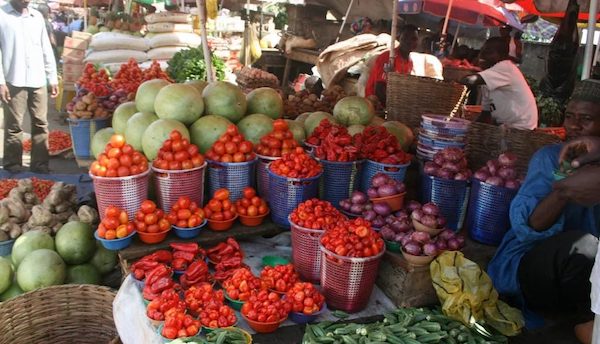Business
Firm reveals in new report Nigeria’s food shortage now 5.7m metric tonnes

A primary player in Nigeria’s agricultural sector, AFEX, has warned Nigerians to brace up for hunger following the rise in the country’s food shortage to a staggering 5.7 million metric tonnes.
AFEX disclosed this in its 2023 Crop Production Report released recently.
The deficit, according to the report, was a consequence of multiple factors, including the threat of climate change, internal conflicts disrupting the nation’s peace, and economic challenges threatening stability.
It said the acute food shortage in Nigeria has pushed the country to 109th out of 125 countries on the Global Hunger Index, and described the development as an indication of a severe food crisis in the country.
The report highlighted a critical improvement in access to farmland for cultivation in crucial areas.
According to the report, there is an increase in the usage of improved inputs, such as high-yielding seeds and fertilizers, compared to last season, which contributed to Maize and Paddy rice being forecasted to have a significantly higher production this season.
However, input lending remains a major challenge today with agriculture making only 6.16 percent of bank lending in 2022.
READ ALSO: Again, Nigeria’s inflation rate goes up, now 27.33%
In his remark at the launch of the report, the President/CEO of AFEX Nigeria, Akinyinka Akintunde, said: “This year, we nearly doubled our sample size from 20,677 to 39,091 to get an accurate reflection of the current state of Agriculture production, and we found that we must take extra care to prioritize improvement in agricultural productivity for these farmers, and this is hinged on investing in the sector, and solving for infrastructure, logistics, and technology gaps.
“This transformation will substantially enhance food self-sufficiency and increase our ability to meet the nutritional and food security needs of a growing population while also bolstering the economy through foreign exchange earnings.”
“A recurring limitation for agriculture on the continent is a shortage of reliable data, which affects the availability of transparent pricing and limits, on one hand, participation from the side of capital market operators and largely financial market players and on the other hand, farmers’ ability to negotiate equitable contracts for themselves.
“This report attempts to build that gap by building a reliable data bank to promote market education and facilitate accurate trading decisions.”
The report will aid the understanding of the current food system while providing stakeholders in the commodities market with intel to make data-driven trading decisions in the coming season.
Join the conversation
Support Ripples Nigeria, hold up solutions journalism
Balanced, fearless journalism driven by data comes at huge financial costs.
As a media platform, we hold leadership accountable and will not trade the right to press freedom and free speech for a piece of cake.
If you like what we do, and are ready to uphold solutions journalism, kindly donate to the Ripples Nigeria cause.
Your support would help to ensure that citizens and institutions continue to have free access to credible and reliable information for societal development.












